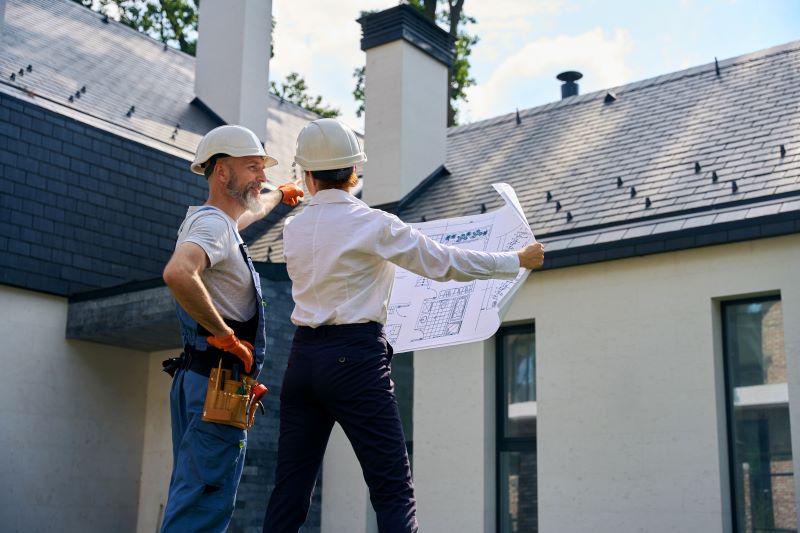The roofing industry is booming. With demand rising across residential and commercial sectors, many roofing companies are experiencing unprecedented growth and profitability. Yet, for some business owners, the ultimate goal isn’t just growth — it’s building value for a future exit.
Whether you’re planning to retire, transition to a new venture, or sell strategically, knowing how to increase your company’s appeal to buyers is essential. Positioning your business effectively will reward your years of hard work and attract the right offers.
- Assess EBITDA performance
- Strengthen recurring income streams
- Modernize financial documentation
- Develop scalable systems and SOPs
- Use advanced project tools
- Highlight client satisfaction
- Document standout roofing projects
- Improve digital marketing presence
- Research different buyer personas
- Organize legal and compliance records
These tips for maximizing your roofing company’s value offer a roadmap to making your company more desirable to investors or buyers. With the right preparation, you’ll not only command a higher price but also ensure a smooth and satisfying transition.
1. Understand the True Value of Your Business
Before you can grow your company’s value, you need to know what it’s worth. Roofing companies are often valued based on a multiple of EBITDA (Earnings Before Interest, Taxes, Depreciation, and Amortization). According to Sunbelt Atlanta, this multiple can range from 3x to 6x, depending on profitability, growth potential, and operational efficiency.
Beyond financial metrics, other assets like equipment, vehicles, and an established client base also contribute to your valuation. So take a 360-degree view of your business — numbers, assets, and market position included.
2. Focus on Recurring Revenue Streams
Buyers love stability. Roofing companies that offer maintenance contracts, service agreements, and warranty work have a predictable income stream that minimizes risk. Not only does this steady revenue increase your valuation, but it also makes your company more attractive to potential acquirers.
Incorporate long-term service contracts into your offerings. Even if they represent a small share of your revenue now, they can significantly boost your business’s overall value.
3. Build a Self-Sustaining Operation
Can your company run smoothly without you? If not, it’s time to change that.
A business that depends entirely on its owner is less appealing to buyers. Streamline your operations, empower your leadership team, and build out standard operating procedures (SOPs) so that day-to-day tasks don’t rely solely on you.
The goal is to create a business machine that continues to operate efficiently even if the owner steps back.
4. Polish Your Financials
Financial transparency is a key factor during the sale process. Ensure your books are clean, organized, and updated. This includes profit and loss statements, balance sheets, tax returns, and cash flow reports for at least the past 3 to 5 years.
Consider hiring a financial advisor or accountant to prepare your documents and identify areas for improvement. Transparency builds trust — and trust increases value.
5. Highlight Your Market Position
What makes your roofing company stand out? Is it your stellar customer reviews, long-standing community presence, or highly skilled team?
Your reputation, market share, and brand equity all play vital roles in valuation. Gather testimonials, showcase completed projects, and build a strong online presence. These intangible assets often tip the scales in a buyer’s decision-making process.
6. Stay Ahead with Technology
The roofing industry, like many others, is evolving. From drone inspections to CRM software and project management tools, adopting modern technologies can set your business apart.
Tech-savvy companies are seen as forward-thinking and adaptable. These qualities not only improve operations but also appeal to tech-oriented investors looking for scalable ventures.
7. Choose the Right Exit Strategy
There are several routes to selling your roofing business: a strategic buyer, private equity firm, competitor, or even internal succession. Each option has its pros and cons.
Working with a business broker, like those at Sunbelt Atlanta, can help you navigate these waters. They can assist in finding qualified buyers, maintaining confidentiality, and negotiating favorable deal terms.
Define your goals early on: Are you prioritizing the highest sale price, a quick exit, or employee retention? Your strategy should align with your endgame.
8. Prepare for Due Diligence
Once a buyer is interested, the due diligence phase begins. Be ready to provide documentation on everything from legal obligations to equipment inventory, customer lists, contracts, and employee records.
This process can be time-consuming, but the more prepared you are, the smoother it will go. Address potential red flags early — outstanding debts, pending lawsuits, or licensing issues can derail a deal.
Final Thoughts: Preparing for a Successful Roofing Business Exit
Selling a roofing business isn’t just about transferring ownership — it’s about demonstrating the full value you’ve built over time. This includes not only your revenue and equipment but also your team, systems, and reputation in the market.
Looking ahead, whether you plan to sell in a year or five, laying the groundwork now can lead to a far smoother, more lucrative exit. Partnering with experienced professionals can give you the edge needed to navigate complex negotiations and due diligence.
- Clarify your exit timeline and goals
- Consult a broker for market insights
- Organize financial and legal records
- Strengthen customer and vendor relationships
- Refine operational systems and leadership handoffs
By implementing these tips for maximizing your roofing company’s value, you set yourself up for a transition that honors your legacy and rewards your hard work.


